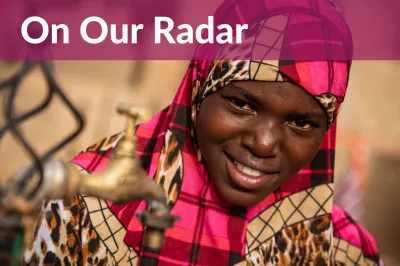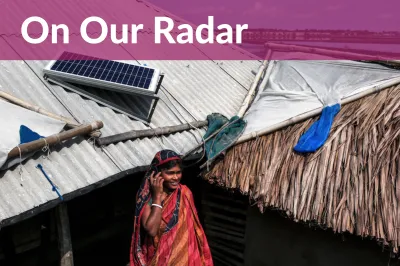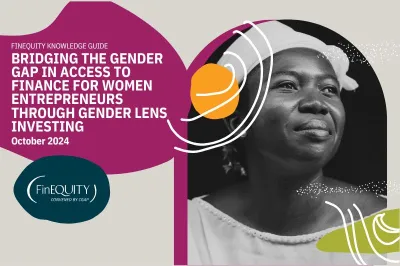Member Spotlight: Trudi Egi
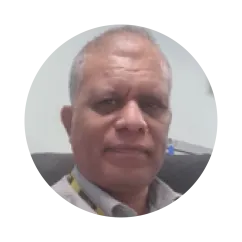
Trudi Egi is the Chief Operating Officer (COO) of MiBank. He has 35 years of banking experience. Trudi has been involved with MiBank's Mobile Money product, MiCash, since its launch in 2012 and coordinates MiBank’s Digital Banking Product Innovations. Trudi holds an MBA from Torrens University Australia and lectures part time with the PNG Institute of Banking and Business Management (PNGIBBM) on Banking Modules.
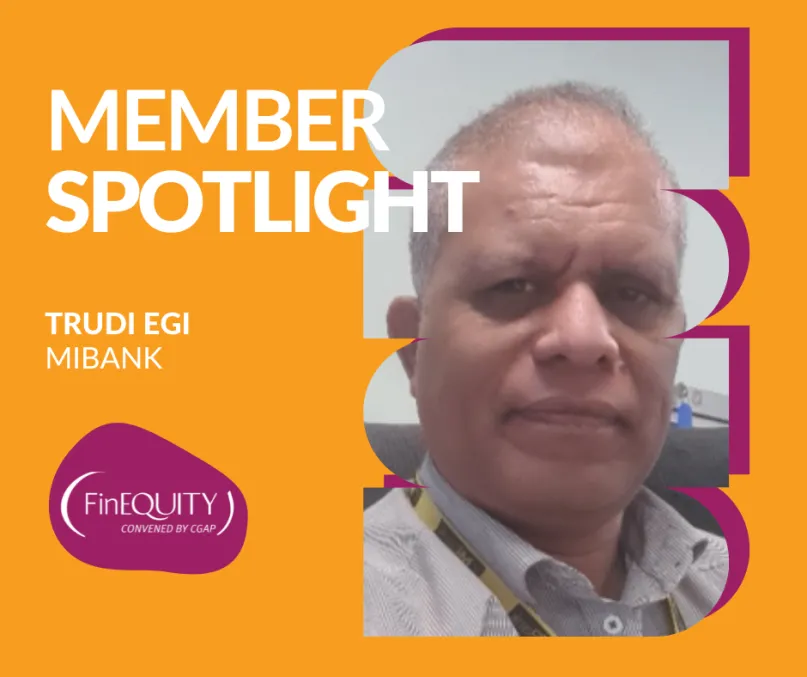
Trudi Egi, Chief Operating Officer (COO) of MiBank Papua New Guinea, sat down with us to discuss MiBank’s journey to over 50% of their accounts belonging to women, his priorities in 2023 to advance women’s financial inclusion, and the role FinEquity plays in his work.
FinEquity: Thank you for sitting down with us, Trudi! Can you tell us a little bit about MiBank and yourself? A fun fact? Something that might surprise most people? Your superpower?
Egi: MiBank first started its business back in 2004. It is a microfinance institution by definition, and it was started in an alluvial gold mine township in a remote part of Papua New Guinea. Most of its customers were village people who were panning for alluvial gold, but because of the interest, it moved down to Lae, which is our second largest city in Papua New Guinea. From there it changed its name to the Nationwide Microbank (MiBank) and started to grow as we opened branches.
It was not until after 2009 that I joined MiBank, and by then the head office had moved to Port Moresby and there were 11 branches. I went and opened the twelfth branch in Kimbe and we now have 16 branches in total. After two years in Kimbe, I was called back to the head office of MiBank to run mobile money operations. So, I have been at the forefront of mobile money in Papua New Guinea ever since it started in 2011 up until now. That has been the journey of the bank and the focus now is on going digital.
While I have this fancy title of Chief Operating Officer at MiBank, I am a very soft-hearted person. I’ve been working in the development space ever since I left university. I’ve always been interested in working with people and that is my strength. In terms of my superpower, I see myself as having the skills needed for working with people in very remote and rural areas - I’m patient and I’m a very good listener.
Entering the microfinance space
FinEquity: How did you get involved in the microfinance, financial inclusion, and women’s economic empowerment spaces?
Egi: My dad and mom were bankers. When my dad passed away, I withdrew from university to look for work because my brothers and one sister were still young. The bank that my dad worked at approached me and asked if I was interested to work for them and that’s how it all started. I started off as a securities clerk with the Development Bank of Papua New Guinea, which is a lending institution, so that exposed me to working with the kind of people that I’m still working with today. When I heard about microfinance, I thought that this could be the answer to ensure people in rural areas were financially included by giving them loans.
I ended up working with MiBank because I was unemployed. I was let go by my former employer, so I spent about a year and a half staying in the village. And because when I worked in the Development Bank I travelled a lot, I thought I would try to get a job closer to my family and stay there. When I submitted an application to a training institution for banking, the CEO of the training institution was also the board chairman of MiBank – and he switched my application from the training institution and put it with MiBank. That’s how I ended up with MiBank and liking every minute of it! For me, this is the job that I enjoy the most and this is the job that I will work at until my retirement.
"When I heard about microfinance, I thought that this could be the answer to ensure people in rural areas were financially included by giving them loans."
FinEquity: As you mentioned, you are currently working as the Chief Operating Officer (COO) at MiBank in Papua New Guinea, can you tell us what that experience has been like?
Egi: Having been working out in the field and then being offered a job up in the structure of the bank, I initially thought, now I’m going to sit in the office and manage stuff, and it’s going to be quite boring. I was also a bit freaked out about working at the top of the bank. I wasn’t used to talking to the managing director and with the executive management team – what was I going to say in these meetings? I was more comfortable with people out in the field, talking to them, telling stories, and enjoying myself. So, I had mixed feelings coming on board. But having done this job and reflecting on what has transpired so far, I think it was the right move for the bank, as far as I’m concerned, because I brought with me field experience that I could share at the management level. When decisions need to be made on particular areas, and especially for women, I could understand how people behaved in the villages and share that insight.
The digital journey to increasing women-owned accounts
FinEquity: What is MiBank working on with respect to women’s financial inclusion that makes you excited? What are some of your success stories?
Egi: When microfinance first started in Papua New Guinea, it was all about women, because men had the bank accounts in the country, women did not. When I first joined, about 15-20% of women in the bank had bank accounts. The rest of the accounts, even for small and medium enterprises, were men-owned and operated. When the microfinance industry started, it was natural that something had to be done about this situation. During the initial days, the focus was to try, as much as possible, to get women on board. We did this from day one, but it was more like a scattergun approach. No one really had a plan and there were challenges of remoteness with women not having access to banking services.
That was the reason why MiBank decided to focus on using technology and that’s where mobile money came in. It originated from the experiences shared in the early 2000s of M-PESA in Kenya and GCash in the Philippines. It was from their experiences that we decided to go into the mobile money space. At the same time, a mobile network operator was looking for partners, so we formed a partnership and launched MiBank’s mobile money.
We then decided to launch a women’s only debit card and a women’s only account. That brought MiBank into prominence because we started shifting our focus and targeting women. My boss always says we did the right thing by bringing a bit of bias towards the women folk. That was way back in 2018 and the numbers have grown. The result is that we are now chasing the 54% mark of women accounts at MiBank, and that’s quite a huge achievement.
In the financial inclusion intervention programs that we have in partnership with donor agencies like the United Nations Capital Development Fund and UN Women, we always ensure that we embed a target of 50% of accounts belonging to women. And that message has also gone out to our staff, especially to the branches and our field staff. Even within the bank itself, we have adopted policies like our Gender Equity and Social Inclusion Program and almost 51% of our staff are women. We have three women who are branch managers and women as executive managers. We practice what we talk about.
"The result is that we are now chasing the 54% mark of women accounts at MiBank, and that’s quite a huge achievement."
Another important area of work has been on women agents. Having set up women agents, women feel more comfortable and confident walking up to them to open accounts, and that has been one of the biggest driving forces in the rural areas. We’ve also created WhatsApp groups for women only, so that they can feel free to communicate with our head office.
Even here, men still have an issue when it comes to women carrying phones for cultural reasons – they suspect the woman is having an affair and using the phone – all these funny ideas that come into men’s minds. So, what we did was when women wanted to open an account, we would ask them to just buy a SIM card, which is very cheap, opposed to buying a mobile phone. When they wanted to do a transaction, they would take the SIM card and easily hide it in a book for example. Then when the men had gone off to work or to garden, the women could easily walk to the nearest agent and deposit or withdraw money to look after the family or buy something for the kids in school. We’ve seen very positive results out of this.
Women are now realizing opportunities are opening for them and they’re coming in in droves. Politicians are also encouraging women to go into business and to participate in income generating activities. They have organized women into groups and those groups come in and open group accounts with the bank. We make it our business not only to open the group account, but we send our teams to go and sit down with the women and identify who the members of those groups are so that we can open accounts for them. Members of Parliament sometimes create credit schemes for them as well. It’s a lot about partnership – with the government, with private institutions, and with donor agencies – all focusing on women.
"It’s a lot about partnership – with the government, with private institutions, and with donor agencies – all focusing on women."
Women's financial inclusion priorities for 2023
FinEquity: What are your top priorities in 2023 for your work on women’s financial inclusion and economic empowerment?
Egi: Mobile banking or the mobile phone has now become the core product offering for MiBank. We know that 85% of all people still live in rural areas and some of these are very, very remote so the only way to get there is by chopper. The question then is, which financial institution is able to reach them?
We have done a few things at MiBank on this front. We still do not have a very good system for identification in the country, but the Central Bank has allowed us to open accounts even using a letter from the village councillor, for example, to say this person is from my area, which is important as Papua New Guinea is still a tribal country. However, we still want to be able to identify people and give them an ID card. We have taken this on board and we just completed a pilot with the Central Bank and ADB on a digital ID system with a company from Finland called Digizen. The project came out with flying colours. What that means now is that using mobile phone technology, we could go out using Near Field Communications (NFC) features on a mobile phone to upload or capture data and photos, images, and fingerprints out in the field, and transfer all of that information onto a chip embedded card. We have taken that one step further and whatever information has been put on that smart card, can be downloaded to open an account when it is taken to a bank.
These are the kinds of things that really excite me because gaining all of those years of experience and now using technology to make life much easier to open a bank account gives me a lot of personal satisfaction. If I was going to do something going forward in 2023, I would want to focus on bringing in information from rural areas through digital identification, especially to do with women, to help report on community development issues that are out there. We can use the mobile phone to do all of that. There is a lot of challenges there and a lot of technology product enhancements that I’ll be working on - I don’t know if I’ll achieve them all in my lifetime!
"If I was going to do something going forward in 2023, I would want to focus on bringing in information from rural areas through digital identification, especially to do with women, to help report on community development issues that are out there."
FinEquity: What role does FinEquity play in your work? Where do you see value in this community?
Egi: I always say to my colleagues in other financial institutions, “you can’t do it yourself; you need to work in partnership with others because we have our own strengths.” There are areas where we feel weak and there is already another organization that is very good in that area and we need to partner with them. I see partnership with FinEquity from this angle. We have been working with women, but we still need to learn from the experts on women’s issues. Every day there is something new that comes up. Talking to FinEquity has helped me to understand those issues that otherwise we may not have been aware of.
